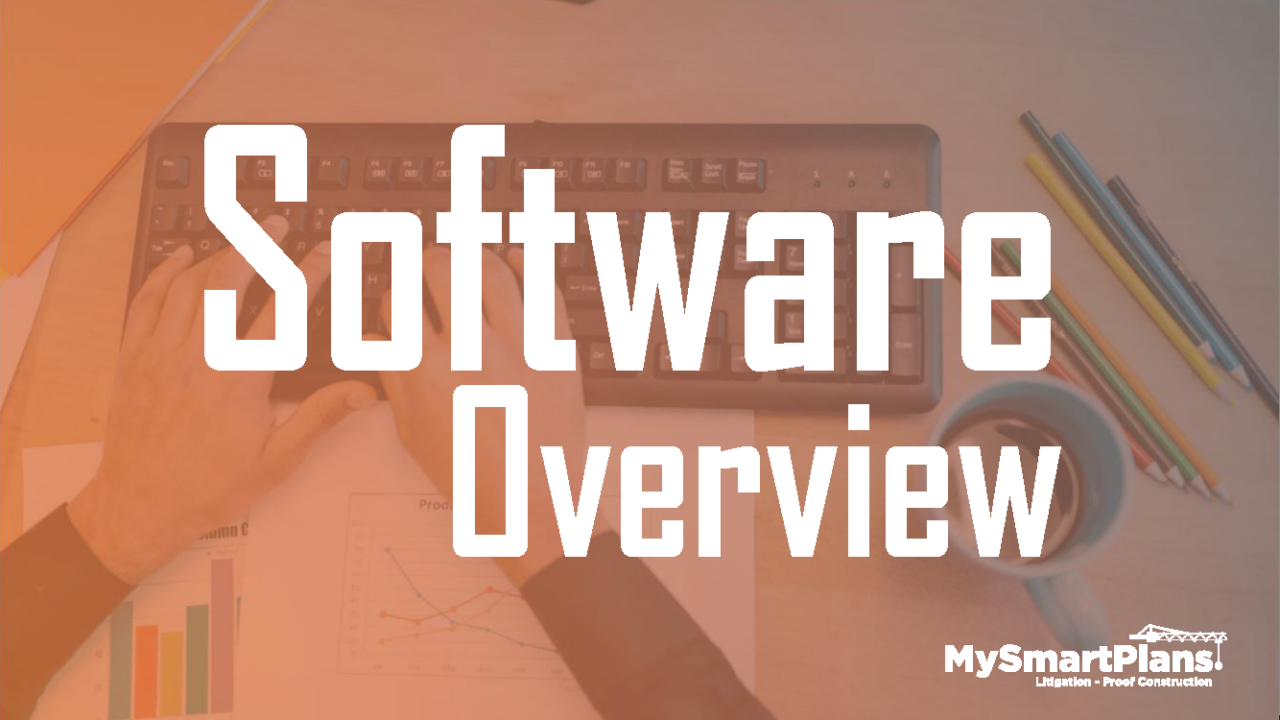MySmartPlans has saved thousands of hours in costly rework and has allowed us to collaborate with our team members in the most efficient manner possible.

Honors & Awards
Business Of The Year
Kansas Women-Owned Businesses 2017
Rule Breaker Award
New York Rule Breakers 2015
25 Outstanding Businesses Under 25 Employees
Twenty Five – 25 2012
CEO of the Year
City Union Mission 2009
Women Who Mean Business
Biz Journal 2009
Vision of Excellence
National Association of Women in Construction – 2009
About MySmartPlans

Born from Hard-Won Experience, Built for Unshakeable Control:
MySmartPlans isn’t just another software company; it’s the culmination of resilience and expertise forged in the crucible of construction chaos. Co-founders Shelley (CEO) and Dominick (President), a highly successful 45-year contractor, experienced firsthand how a single project plagued by insufficient data could unravel decades of success, forcing them to close their previous company’s doors.
They didn’t just rebuild; they reinvented construction project management to conquer the very issues that cost them dearly.
MySmartPlans delivers unparalleled project control through a unique fusion of advanced technology and dedicated human expertise. We embed an experienced Digital Information Librarian directly into your team. These specialists are far more than support; they are the catalyst for rigorous Data Governance, meticulously organizing every document and data point.
This creates radical transparency and efficiency, drastically mitigating the risks associated with poor document oversight. For 19 years, we’ve empowered clients to deliver billions of dollars in projects on time and budget, backed by an ironclad, audited project history proven to prevent costly disputes and litigation. We offer the world’s most advanced construction intelligence solution, ensuring clarity and success from groundbreaking to handover.
Honors & Awards
Business Of The Year
Kansas Women-Owned Businesses 2017
Rule Breaker Award
New York Rule Breakers 2015
25 Outstanding Businesses Under 25 Employees
Twenty Five – 25 2012
CEO of the Year
City Union Mission 2009
Women Who Mean Business
Biz Journal 2009
Vision of Excellence
National Association of Women in Construction – 2009
About MySmartPlans

Shelley Armato and Dominick Armato
Shelley is the Founder and CEO of MySmartPlans. Her husband Dominick is Co-founder and President. They suffered firsthand the effects of chaos in the industry. Dominick, a 45-year contractor, was wildly successful and one project with insufficient data caused them to shut the doors on that company. But they rose again and reinvented the construction industry by streamlining the business.
MySmartPlans is a software-as-a-service solution with an experienced digital information librarian as part of your team, who creates transparency, organization, and efficiency in construction projects. They are the driving force behind Data Governance, which mitigates the risk associated with insufficient document oversight. MySmartPlans has been improving the industry for 16 years and has a revenue aggregate of over 19 billion dollars. Build on time, on schedule, and with audited as pre-discovery files that are proven to prevent litigation!
MySmartPlans Track Record:
17 years in business
100% of our 2,130 projects were protected from litigation
$23 billion in project value completed
99.9% of projects were completed on time & on budget
18% project on-site savings
Platform Features
MySmartPlans Track Record:
17 years in business
100% of our 2,130 projects were protected from litigation
$23 billion in project value completed
99.9% of projects were completed on time & on budget
18% project on-site savings
Learn More
The MySmartPlans Manifesto
MySmartPlans has saved thousands of hours in costly rework and has allowed us to collaborate with our team members in the most efficient manner possible.

MySmartPlans helped us focus on the project rather than collection of data & documentation. The MSP team knows what needs to be included and does a great job gathering, managing and ensure timey responses on required information. It also gives us a centralized location for project documentation, giving us comfort of knowing where to find information in the future. MSP allows us to work smarter and be smarter.

Technology has made promises over the years that someday we would all be paperless and all electronic, but there has been a missing link in sharing information between groups. MySmartPlans is the medium that fills that gap.

As a construction litigator…to be able to point and click and find the documentation that relates to that specific change order, whatever, in seconds as opposed to days or weeks manually would be a game changer.

Software Alone Will Not Protect Your Budget: The Role of Accountability in Construction Project Management
Introduction:
In the fast-paced world of construction project management, efficiency, cost control, and timely delivery are paramount. With increasing project complexities, managing budgets has become a challenging task. Many construction project managers and teams turn to software solutions to streamline their processes and ensure efficient project completion. While software can offer numerous benefits, it is crucial to recognize that it is not the ultimate solution to all challenges faced in the construction industry. This article aims to shed light on the importance of accountability in construction project management and how it goes beyond the capabilities of software alone.
The Limitations of Software:
Construction project management software has undoubtedly revolutionized the way projects are planned, executed, and monitored. It offers features like project scheduling, resource allocation, cost tracking, and document management, enabling stakeholders to have a comprehensive view of the project. However, software is just a tool; it cannot single-handedly protect your budget.
One of the limitations of software is its reliance on accurate data input. While software can provide real-time updates and generate reports, it is only as accurate as the data it receives. If there are discrepancies or inaccuracies in the data input, the generated reports and analytics will not present an accurate representation of the project’s financial health.
Furthermore, software can only provide insights based on the information it has been programmed to analyze. It lacks the ability to interpret human factors, market fluctuations, and unforeseen circumstances that can impact project costs. Construction projects are dynamic, and unforeseen events or changes in scope can significantly impact the budget. Software alone cannot anticipate or address these challenges.
The Role of Accountability:
To truly protect your budget and ensure the successful completion of construction projects, accountability plays a vital role. Accountability involves transparency, responsibility, and reliable communication among all project stakeholders. It goes beyond the capabilities of software and requires a collaborative effort from project managers, contractors, subcontractors, suppliers, and other team members.
Accountability starts from the top-level project management team and should be cascaded down throughout the organization and project teams. It involves setting clear expectations, defining roles and responsibilities, and ensuring everyone understands their impact on the project’s budget.
With accountability in place, processes can be implemented to track and monitor project costs accurately. Regular financial reviews and audits can help identify any deviations from the budget and allow for timely corrective actions. Accountability also encourages proactive risk management, preventing issues from escalating and potentially causing budget overruns.
The Importance of Information Governance:
Information governance is a crucial aspect of accountability in construction project management. It involves the organization, storage, access, and sharing of project-related data and documentation. Having a centralized system where all project-related information is stored ensures easy access for all stakeholders. This promotes transparency and facilitates the tracking and monitoring of costs throughout the project lifecycle.
Software solutions can certainly assist in information governance by providing a centralized platform for document management. However, it is essential to have robust governance processes in place beyond software functionality. This includes establishing protocols for data entry, maintaining data integrity, and ensuring the accuracy and completeness of information.
By leveraging software solutions along with effective information governance, project teams can maximize the benefits of technology while upholding accountability standards.
The Human Factor:
While software can automate processes and provide valuable insights, it is crucial to recognize the value of human expertise in construction project management. Experienced project managers and teams bring a wealth of industry knowledge, problem-solving abilities, and critical thinking skills that software alone cannot replicate.
Construction projects are inherently complex, involving multiple stakeholders, site conditions, material availability, and more. It requires human judgment to interpret data, make strategic decisions, and adjust course when necessary.
Additionally, effective communication and collaboration among project stakeholders are critical for successful cost management. Software can facilitate communication, but it cannot replace the importance of face-to-face interactions and effective teamwork. Building trust and fostering open communication channels are essential for maintaining accountability and managing project budgets effectively.
Conclusion:
While software solutions have transformed the construction industry, it is imperative to understand their limitations. Software alone cannot protect your budget and ensure successful project completion. Accountability, information governance, and the human factor are equally important in managing project costs. By fostering a culture of accountability, implementing robust information governance processes, and leveraging software as a tool, construction project managers and teams can optimize their budget management efforts and achieve successful project outcomes.
What are your thoughts on the role of software and accountability in construction project management? How have you experienced the limitations of software or the benefits of accountability in your projects? Share your insights and experiences in the comments below.
MySmartPlans is the leading software solution for construction project management, offering transparency, organization, and efficiency to ensure on-time and on-budget completion of projects. With our experienced digital information librarians and data governance capabilities, we help mitigate risks and prevent litigation in the construction industry.
A recent Oracle article, “How AI Is Reshaping Construction,” correctly identifies the transformative potential of artificial intelligence in addressing the industry’s critical challenges of labor

What Are You Really Buying with MySmartPlans? (It’s Not Just Document Management) Discover how MySmartPlans goes beyond construction document management to deliver confidence, control, and

The Construction Data Explosion Every major construction project today operates like a massive data machine. Airports, hospitals, high-rises—these projects generate not just thousands of documents,
The only third party administered construction management platform
803 Armstrong
Kansas City, KS 66101
Phone:
(816) 221-7881
Email:
shelley@mysmartplans.com
support@mysmartplans.com

Powered By EmbedPress